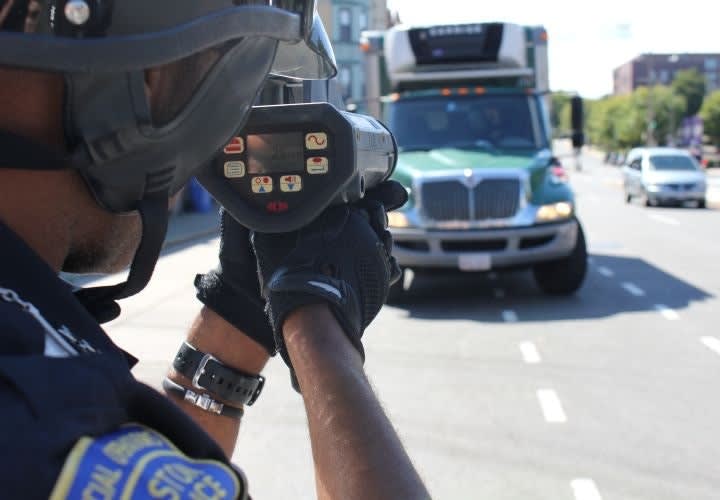Editor's note: This article is part of our ongoing coverage of special assignments in law enforcement. Read the other articles here.
If you're an officer serving a small- to medium-sized department, you may want to start a traffic-enforcement unit. One officer will get the grand idea that he or she needs a big police motorcycle to be a ticket monster. Before you raise your kickstand, understand that there's far more to forming a traffic unit than the wind in your face and bugs in your teeth.
If the chief or sheriff wants to form a traffic unit, stop and ask what kind of unit. Is this purely enforcement or is this a special events traffic detail? Will you handle parades, funeral escorts or other special events? Will you investigate serious and fatal accidents up to and including reconstruction?
There is a wide range of what a traffic unit is or can be. First and foremost, can your staffing and budget allow it? Some may have a traffic-orientated officer on each shift to handle the demanding crashes and technical questions. Can your current staffing allow all of this expertise to be placed on a different shift configuration? If so, what will the budget look like? Now, let's look at the fleet budget. Vehicles will have to be equipped and possibly assigned to the unit that will have specialized equipment needs.
Motorcycles are a different creature all together. Consider your climate. If they're going to be fair-weather assignments, what do they ride in the winter? I suggest you contact your department's insurance underwriter before you go to two-wheel land; these rates are usually a tad higher than sedan coverage. Motorcycles require special motor officer training. I don't care how great a rider you are, you'll still need motorcycle emergency vehicle operations courses to protect your staff, fleet, and legal liability.
If you're still convinced that staffing, budget, and fleet considerations can weather the idea, move to training and selection. Once you pick a model to follow, the traffic unit will require training to meet those needs. Check with your state and other police training institutes for their curriculums and recommendations. I attended the Institute of Police Traffic Management. Some states now allow local officers to investigate the weights and measures on trucking (sometimes known as commercial) enforcement. These certifications require intensive training and equipment that's very expensive. Pricing on a set of portable scales and other truck-related equipment will frighten most away.
Staff selection will be guided by your internal transfer polices. I would strongly suggest officers who like traffic enforcement. They understand that working parades means everyone is watching them, and their schedules are extremely flexible. Between working special events, call-outs for crashes and court time, they must be dedicated before they apply.
There's one policy you'll want to get straight before you start. All too often the traffic unit becomes the S.N.E.W. (Stuff Nobody Else Wants) Unit. If there's an escort, they give it to traffic. If there's a pothole being repaired, they give it to traffic. If there's a special event and patrol is tied up, give it to traffic.
If you're going to budget, select, train, equip, and utilize all of this for traffic, then do it. But to make them a fill-in for patrol and special events is a waste of their talent and manpower. If you do this, do it correctly and use them as they should be used.












